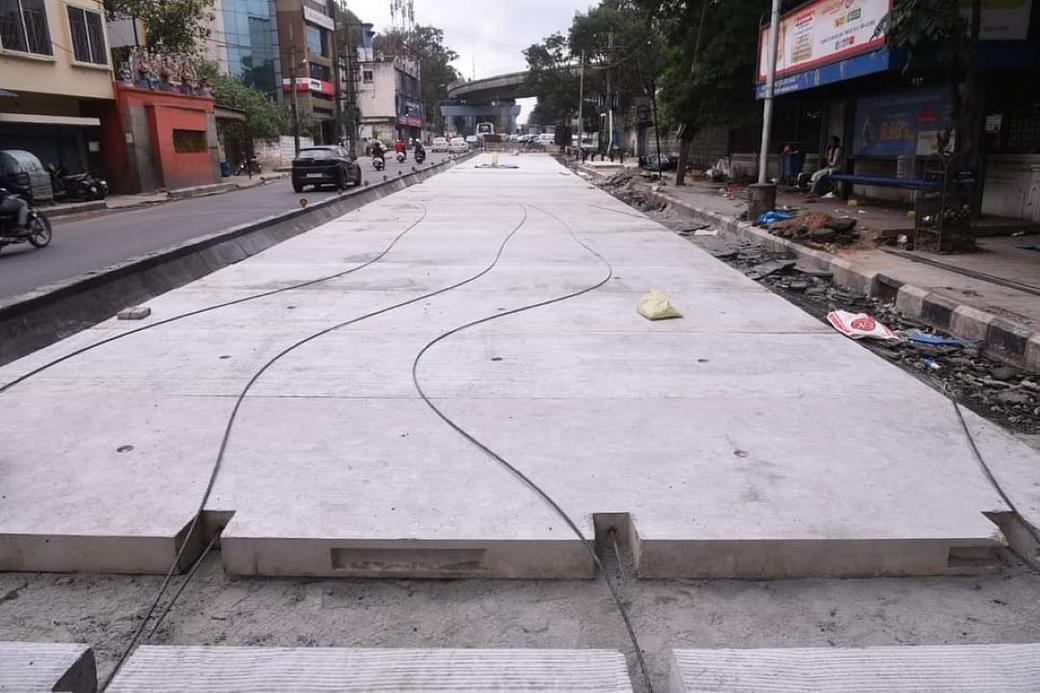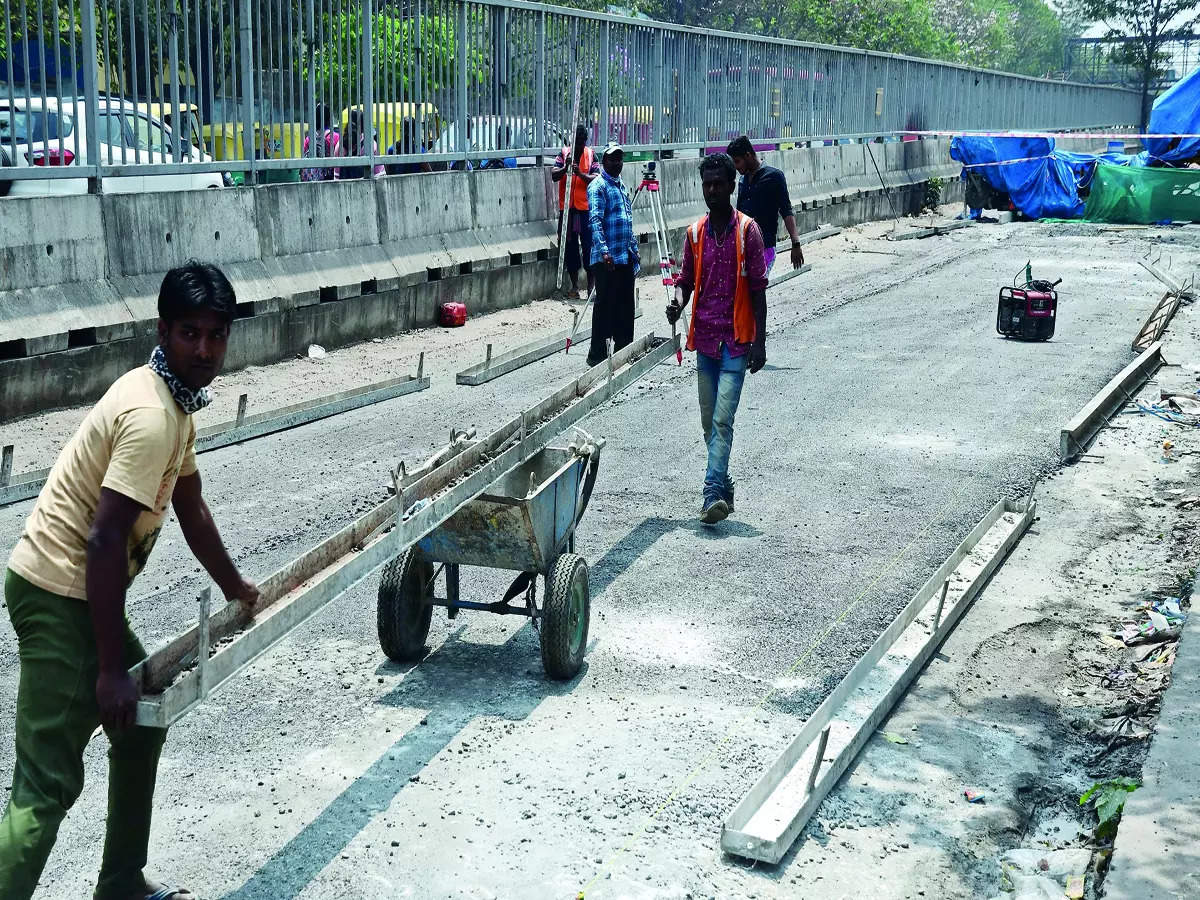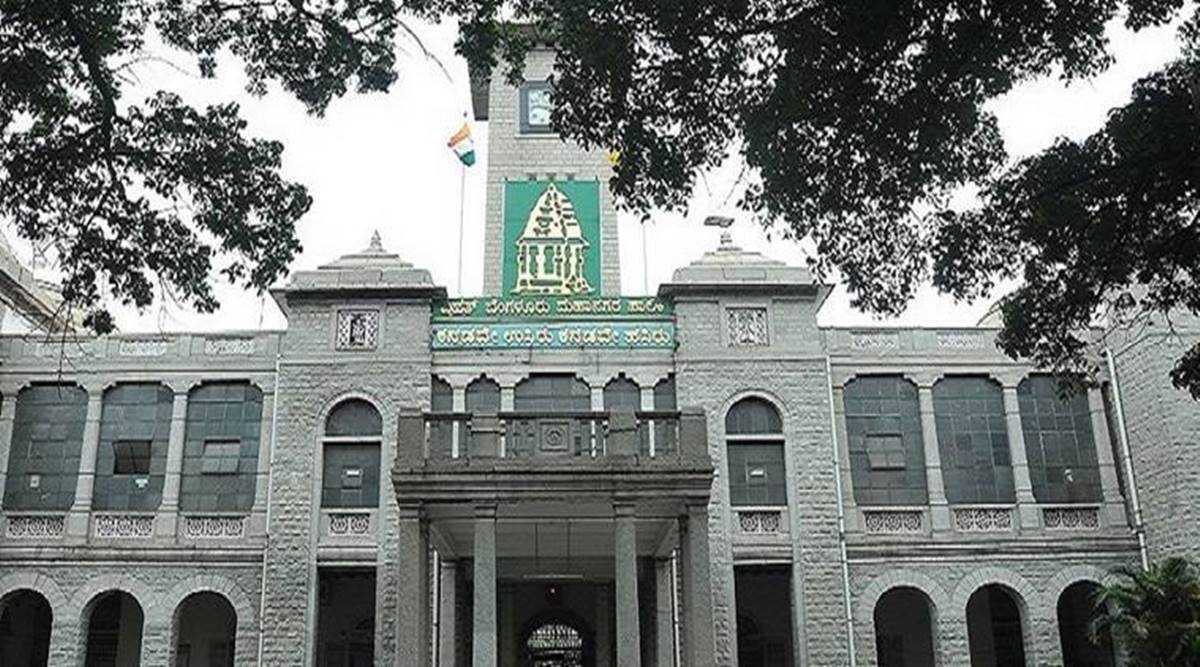The Bruhat Bengaluru Mahanagara Palike (BBMP) is set to embark on a significant initiative as it plans to implement an ambitious Rs 800-crore white-topping project within its precincts. With a meticulous strategy in place, the authorities are identifying roads in eight zones for this groundbreaking project. Currently, discussions regarding its implementation are in progress, awaiting the crucial approval of Deputy Chief Minister and Bengaluru Development Minister DK Shivakumar.

Source : Swarajya
A senior official from the BBMP Projects Division emphasized the urgent need to alleviate traffic congestion on the city’s main thoroughfares. Consequently, the decision to proceed with the white-topping project has been firmly established, aiming to address this pressing concern.
The official further stated that the primary motive behind the white-topping (concreting) project is to curtail the regular expenses incurred on road maintenance every three years. This proactive step by the Palike is aimed at ensuring long-term durability and sustainability of the city’s roads.

Source: Bangalore Mirror
Elaborating on the origins of the white-topping concept, KT Nagaraj, a retired Chief Engineer of the BBMP Projects Division, revealed his instrumental role in its introduction to the city. Initially piloted on the Karnataka Public Service Commission office road, the project expanded to encompass key stretches, such as Nrupatunga Road to KR Circle, and Kasturba Road to Coffee Day Circle on Vittal Mallya Road.
Nagaraj lauded the successful execution of the project, highlighting the absence of complaints on these upgraded roads. Notably, a substantial 22-kilometer segment of the Outer Ring Road, spanning from KR Pura to Goraguntepalya, and up to Nayandahalli, was also efficiently transformed through white-topping. Following the established standards set by the Indian Road Congress, the engineers meticulously ensured that the road thickness ranged from 150 mm to 200 mm, projecting a lifespan of 30 years for the newly concreted roads.

Source: The Indian Express
Moreover, Nagaraj provided insights into the financial aspect, indicating that the cost per kilometer for white-topping amounts to Rs 8 crore. While the implementation of the project on the main roads is relatively straightforward, he acknowledged the challenges involved in executing white-topping at the ward-level due to the complexities associated with the relocation of utilities.



















































































